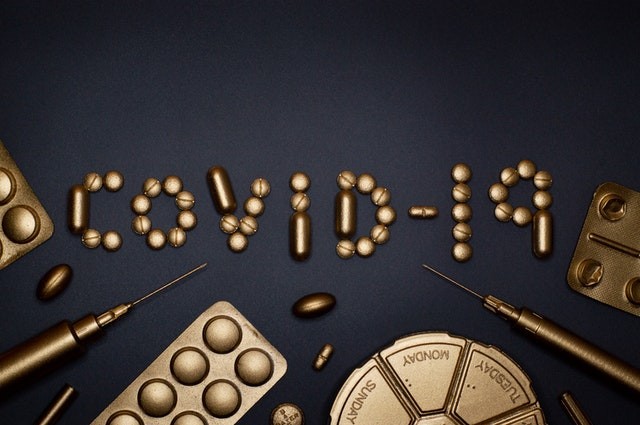Patients with COVID-19 who were given full-dosage blood thinners in the intensive care unit (ICU) were considerably more likely to have significant bleeding than those given a lower but equally effective dose.
The findings, published in Hospital Pharmacy this month, may help define treatment guidelines for blood clots in COVID-19 patients at a higher risk of both blood clots and severe bleeding while in the hospital. The study title is "Comparison of Higher-Than-Standard to D-Dimer Driven Thromboprophylaxis in Hospitalized Patients With COVID-19."
Maya Chilbert, PharmD, clinical assistant professor in the UB School of Pharmacy and Pharmaceutical Sciences, led the study. Collin Clark, PharmD, clinical assistant professor, and Ashley Woodruff, PharmD, clinical associate professor, are two other researchers in the UB School of Pharmacy and Pharmaceutical Sciences. The study also involved Buffalo General Medical Center investigators, Millard Fillmore Suburban Hospital, and Erie County Medical Center.

Researchers recently used advanced computational simulations to investigate the efficacy of a tiny molecule in terms of treating COVID-19.
COVID-19 Patients in Mechanical Ventilators Had Bleeding When Given Full-Dose Blood Thinners
The researchers looked at the results of blood clot treatments and the rate of bleeding events in over 150 COVID-19 patients who were given one of two blood thinner regimens: a full-dose based on patient levels of D-dimer (a protein present in the blood after a blood clot dissolves) or a smaller but higher-than-standard dosage.
According to Science Daily, the average patient was 58 years old. They all had high levels of D-dimer, fibrinogen (a protein that aids in blood clotting), and prothrombin time (a test that measures the time it takes for blood plasma to clot).
ALSO READ: Moderna Announces Clinical Trial for 3rd Vaccine Developed Against Omicron Variant
A substantial bleeding episode occurred in nearly 14% of patients who got full-dose blood thinners, compared to only 3% of patients who received a higher-than-standard dosage. All of the patients who had bleeding episodes were mechanically ventilated. The efficiency of the regimens in treating blood clots was not found to differ.
According to Chilbert, further research is needed to discover the best technique for managing blood clots and bleeding in COVID-19 individuals who are hospitalized.
Treat Blood Clots Among COVID-19 ICU Patients With Caution, Experts Say
According to the study, almost all patients who sustained considerable bleeding were mechanically ventilated and receiving full-dose blood thinners, which assessed the safety and efficiency of blood clot management regimens for more than 150 critically sick COVID-19 patients at two hospitals.
Chilbert said in a statement that there are many different approaches to treating blood clots in hospitalized individuals with COVID-19. The researcher went on to say that there isn't much evidence to imply that one method is better than the other.
Chilbert added that prudence should be used when treating blood clots in mechanically ventilated COVID-19 patients. The researcher a the choice to use full-dose blood thinners should be based on a compelling rationale rather than lab indicators alone."
RELATED ARTICLE: Heart Transplant Denied to 31-Year-Old Patient Who Refused to Receive COVID-19 Vaccine
Check out more news and information on COVID-19 in Science Times.










!['Cosmic Glitch' in Einstein's Theory of General Relativity Could Be Explained in This New Scientific Tweak [Study]](https://1721181113.rsc.cdn77.org/data/thumbs/full/53435/258/146/50/40/cosmic-glitch-in-einsteins-theory-of-general-relativity-could-be-explained-in-this-new-scientific-tweak-study.jpeg)



